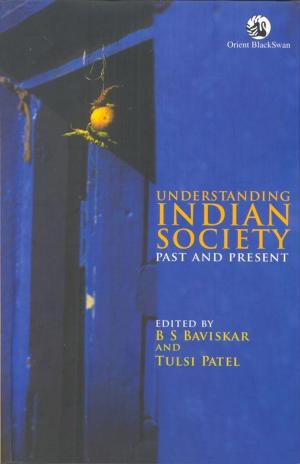The Burden of Refuge: Partition Experience of the Sindhis of Gujarat
Nonfiction, History, Asian, India| Author: | Rita Kothari | ISBN: | 9789352875054 |
| Publisher: | Orient Blackswan Private Limited | Publication: | December 15, 2009 |
| Imprint: | Language: | English |
| Author: | Rita Kothari |
| ISBN: | 9789352875054 |
| Publisher: | Orient Blackswan Private Limited |
| Publication: | December 15, 2009 |
| Imprint: | |
| Language: | English |
Unlike most partition narratives, the narratives of the Sindhis is not marked by violence and bloodshed. The Hindus of Sindh came to India by ship, camel and train, and were unharmed most of the time. The Burden of Refuge is about Partition, and the resettlement and fragmentation of the Sindhi Hindus of India. Rita Kothari traces the trajectory of the Sindhi Hindus from Sindh to India, specifically to Gujarat. The Burden of Refuge tells the story of the Sindhi Hindus of Gajarat beginning with colonial Sindh and tracing the socio-political dynamics of the pre-Partition days. Through personal narratives, Kothari begins to life the story of various Sindhis as they migrate to India and begin their process of resettlement. She delineates the contexts that made an atypical commodity like the Sindhis re-modify themselves to suit more textbook notions of Gujarati bourgeois society. In their desire to assimilate with the India (especially Gujarat), the Sindhis gained much, but also suffered many losses. Though Sindhis have risen from the ashes of Partition as a model immigrant community, the Sufi syncreticism that informed their former life has been tragically damaged and they have also suffered the loss of their language. In Gujarat, their loss are accompanied with a desire to become ‘popular’ Hindus by adopting a more monolithic Hindu identity and by denying their ‘Sindhiness’.Using intergenerational voices and combining history with personal narratives, Kothari’s book examines the phenomena of psychological violence during and after Partition, and explores a different facet of Partition Studies. Going beyond Partition Studies, this book also makes an important contribution to the area of identity politics in contemporary India. This multidisciplinary study is relevant to everyone interested in India’s past and present.
Unlike most partition narratives, the narratives of the Sindhis is not marked by violence and bloodshed. The Hindus of Sindh came to India by ship, camel and train, and were unharmed most of the time. The Burden of Refuge is about Partition, and the resettlement and fragmentation of the Sindhi Hindus of India. Rita Kothari traces the trajectory of the Sindhi Hindus from Sindh to India, specifically to Gujarat. The Burden of Refuge tells the story of the Sindhi Hindus of Gajarat beginning with colonial Sindh and tracing the socio-political dynamics of the pre-Partition days. Through personal narratives, Kothari begins to life the story of various Sindhis as they migrate to India and begin their process of resettlement. She delineates the contexts that made an atypical commodity like the Sindhis re-modify themselves to suit more textbook notions of Gujarati bourgeois society. In their desire to assimilate with the India (especially Gujarat), the Sindhis gained much, but also suffered many losses. Though Sindhis have risen from the ashes of Partition as a model immigrant community, the Sufi syncreticism that informed their former life has been tragically damaged and they have also suffered the loss of their language. In Gujarat, their loss are accompanied with a desire to become ‘popular’ Hindus by adopting a more monolithic Hindu identity and by denying their ‘Sindhiness’.Using intergenerational voices and combining history with personal narratives, Kothari’s book examines the phenomena of psychological violence during and after Partition, and explores a different facet of Partition Studies. Going beyond Partition Studies, this book also makes an important contribution to the area of identity politics in contemporary India. This multidisciplinary study is relevant to everyone interested in India’s past and present.















